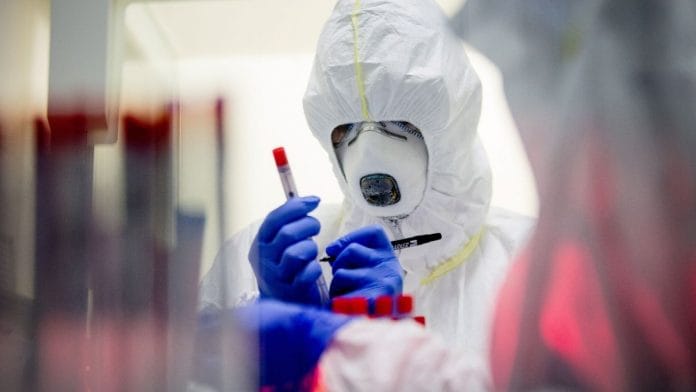Disinfecting devices that zap out deadly viruses, low–cost tests that help detect infection, innumerable drug trials and candidate vaccines touted as the hope against the pandemic — these such headlines have become commonplace been repeatedly popping up ever since the coronavirus pandemic became known.
And yet, here we are five months later — the number of coronavirus cases are still rising and nothing seems to be able to arrest the spread of Covid-19.
Almost every research university has come forward and to announced new projects to find a treatment for Covid-19. While many are still under development, most of these ‘innovations’ will probably never might never even leave the lab.
But in science, establishing that something does not work is just as important as finding a solution. These failures are often invisible to the public eye, but they lay important foundations in drug research.
Also read: We can eradicate novel coronavirus with a vaccine, as we did with smallpox
Research often takes unexpected twists and turn
Take Remdesivir for example, the drug that was recently found to help patients recover faster.
The drug was First developed in 2009 as a potential treatment for hepatitis C, the drug did not work against the disease as hoped. But lab tests later showed that the drug had potential against a range of zoonotic viruses — such as Ebola, SARS and MERS.
When the Ebola epidemic broke out in 2013, Remdesivir was hoped to be the answer. Tests in conducted on monkeys showed promise promising results, as did initial clinical trials in human volunteers. However, by 2019 it became clear that other treatments showed comparatively better results.
But ten years of research did established something important — the drug was safe for human use. And That knowledge is what helped researchers quickly roll out clinical trials of the drug to test its effectiveness on Covid-19.
Similarly, every success story in science is built on a history of failures. Research often takes unexpected twists and turns, it is hardly ever a unidirectional progress.
The same principle holds is true for devices and test kits. A prototype that works worked in the lab needs much more than robust science to make it work in the market. It should be cost–effective for consumers and profitable for producers. Scientists often learn the hard way that everything that works may not be market–friendly, and thus many of us never get to see various the devices produced by researchers that the researchers produce.
But these experiences help them scientists build a roadmap that takes their technologies out of the labs. Even if their research is not working today, the labs can become equipped for whatever comes next.
But then, how do we fight the current Covid-19 pandemic?
Repurposing existing drugs
The reason why most clinical trials are looking to repurpose at repurposing existing drugs is because the answer to today’s problems lies in within yesterday’s research.
Good science is slow and cautious. That is what makes it reliable. My limited experience as a science journalist has taught me to be wary of scientific claims that are overtly optimistic.
An experienced, accomplished scientist looks at their own research findings with scepticism. Yet every little success and failure is a step forward.
Virologists have repeatedly warned that outbreaks from zoonotic diseases are going to become a recurring feature. Viruses are constantly evolving and even after we emerge from the current pandemic, the threat of outbreaks from newer viruses will continue to loom.
The aggressive research of today prepares can prepare the world for what is still unknown.
Views are personal.
Also read: Private Indian firms who got govt approval to make antibody tests hit a hurdle — the govt







SHOCKING
Is there no editing? Shocking mistakes. Looks like a copy paste job
1. While many are still under development, most of these ‘innovations’ will probably never might never even leave the lab.
Emm what?
2. Thus many of us never get to see various the devices produced by researchers that the researchers produce.
Emm what?